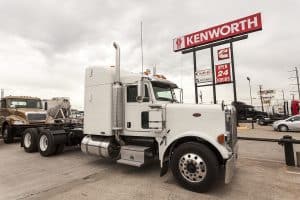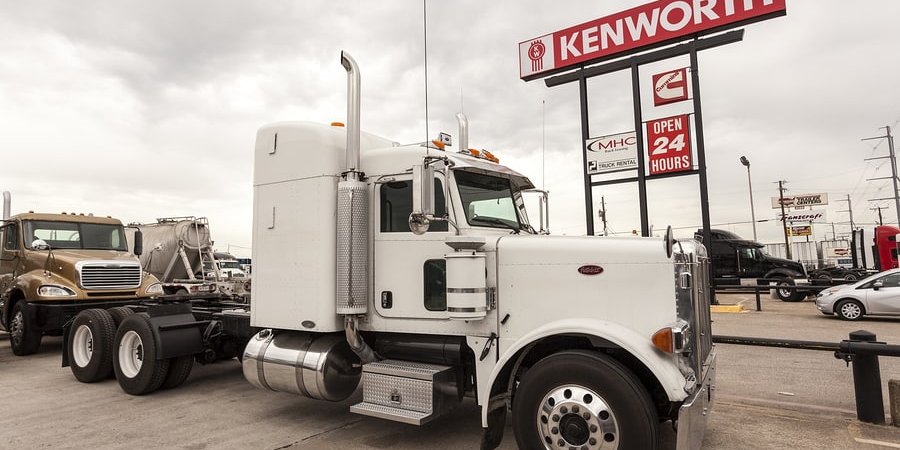A private sale occurs when the truck or equipment being sold is through a private individual or company. The private individual or company selling the equipment is not a licenced truck or equipment dealer but a business on selling equipment to another party.
Finance companies consider vendors in three separate categories;
Private Sales – a private individual or company that does not hold a motor dealers licence
Dealers – outlets that sell equipment as their core function and hold a motor dealers licence
Auctions – outlets that sell equipment on behalf of individuals or finance companies
Depending on whether or not an applicant is purchasing equipment through a dealer, auction or private sale, there will be different implications on both the assessment and settlement of the transaction.
So how does the type of vendor impact on Truck Finance or any other type of Heavy Equipment Finance.
Private Sale
Deals relating to private sales are the most challenging and time consuming transactions to assess and to finalise. When assessing these types of deals, finance companies need to consider the reputation of the vendor and accurately get a handle on the value of the asset being purchased and to indeed make sure that the goods actually exist.
There has been documented cases whereby private sales have been the springboard for fraudulent activity or for cash raising purposes. For instance, if a truck is owned outright by one particular person that is experiencing financial woes, they could request a friend to organise finance to purchase the truck from them. The finance company that provides the funding pays the private individual selling the truck, but the vendor could retain the truck and make payments to the friend that organised the finance. This is not ideal for the finance company that provided the loan, as things can get messy in the event the truck needs to be repossessed when monthly payments are not made.
The next thing to consider is to make sure that the truck or equipment being sold is not overpriced. As a result, more resources need to be used so an accurate value on the goods can be obtained. Valuations can be obtained either in house, in what is called a desktop valuation (at no cost to client) or a professional valuer such as Pickles Auctions (at clients cost – depending on the goods can be between $550 to $2,500 and even more if multiple items are being purchased).
Another important part when considering the private sale process is ensuring that an inspection on the equipment is completed, this is to ensure that the goods actually exist. Again, there has been documented cases, whereby finance companies have gone to repossess equipment, only to find out that they never existed. Depending on the location of the goods, completing the inspection on the goods can often hold up the settlement process. Inspections are particularly difficult to obtain for Tractor Finance or any other farming implement, if they are located on a remote property.
Given the fact that private sales have historically been open to fraudulent activity, finance companies need to obtain a lot of personal information from a private vendor so as to protect themselves from fraudulent transactions. Such information that will be requested may include, copy of drivers licence from the vendor, signed private sale invoice, copy of bank statement or deposit slip to confirm account details on the invoice, copy of rego papers (if applicable) and confirmation that there is no loan against the equipment being sold.
As can be seen, there is a lot of information that needs to be considered with both assessing and settling private sale transactions. The process is time consuming and costlier for the client.
Dealers
When the equipment being sold is through a dealer, assessment and settlement turnarounds are a lot quicker and cheaper than a private sale.
Dealers of trucks or heavy equipment hold a dealer’s licence and are bound by state based legislation, which means that the instances of fraudulent activity is substantially reduced. Given the fact that selling equipment is their core business, it is not in the best interest to engage in fraudulent activity – as if found out, they could lose their dealers licence and go out of business.

No valuations are required on goods being purchased through a dealer, as it is unlikely that a dealer will sell equipment significantly above the market value. No valuations on the truck or equipment being purchased means client does not incur the costs associated with a professional valuation. Moreover, no inspections are required which speeds up the settlement process.
Given the fact that motor dealers are governed by legislative requirements, the only requirement from them is an invoice finance companies do not require any other supporting documentation. This means that settlement turnarounds for the applicant are much quicker.
Auctions
Equipment that is sold through an auction house is considered in the same way as goods being sold through a truck or equipment dealership, with assessment and settlement turnarounds to be quicker than private sale transactions.
Auction houses are also bound by legislative requirements that ultimately protect the consumer. However, based on the fact that auction houses are selling goods on behalf of someone else – ie bank or private business, the buyer is purchasing equipment that is a less known quantity than if purchased through a dealer. Dealers, have full history of the truck or equipment they are selling and really want to protect their business reputation by selling quality goods.
Again, no valuations or inspections are required when equipment is being sold at auction – saving the client money on professional valuation costs, along with speeding up the settlement process.
In summary
When an applicant is purchasing equipment from a private vendor, finance companies need to complete a lot of research on both the goods being sold and the vendor selling the goods. This ultimately means, it is more difficult, costlier and more time consuming for an applicant to source finance approvals. Private sale transactions also significantly decrease the low doc finance options for the client and therefore limits their maximum borrowing capacity.
Transactions through a licenced dealer or auction house are quicker and cheaper for the applicant. Equipment Finance Companies in Australia have real preference for funding equipment purchased through a dealer or auction house, as it isolates them from fraudulent activity and provides greater security around the value of the asset. As this is the case, Heavy Equipment Financiers are more likely to grant finance approvals to their customers when dealer or auction purchases are involved. Dealer or auction purchases also provide an applicant with greater finance options and can assist to maximise their overall borrowing capacity.
Please do not hesitate to call the team at Heavy Vehicle Finance on 1300 788 740 to discuss any funding scenarios you might have relating to private sales or dealer purchases.








